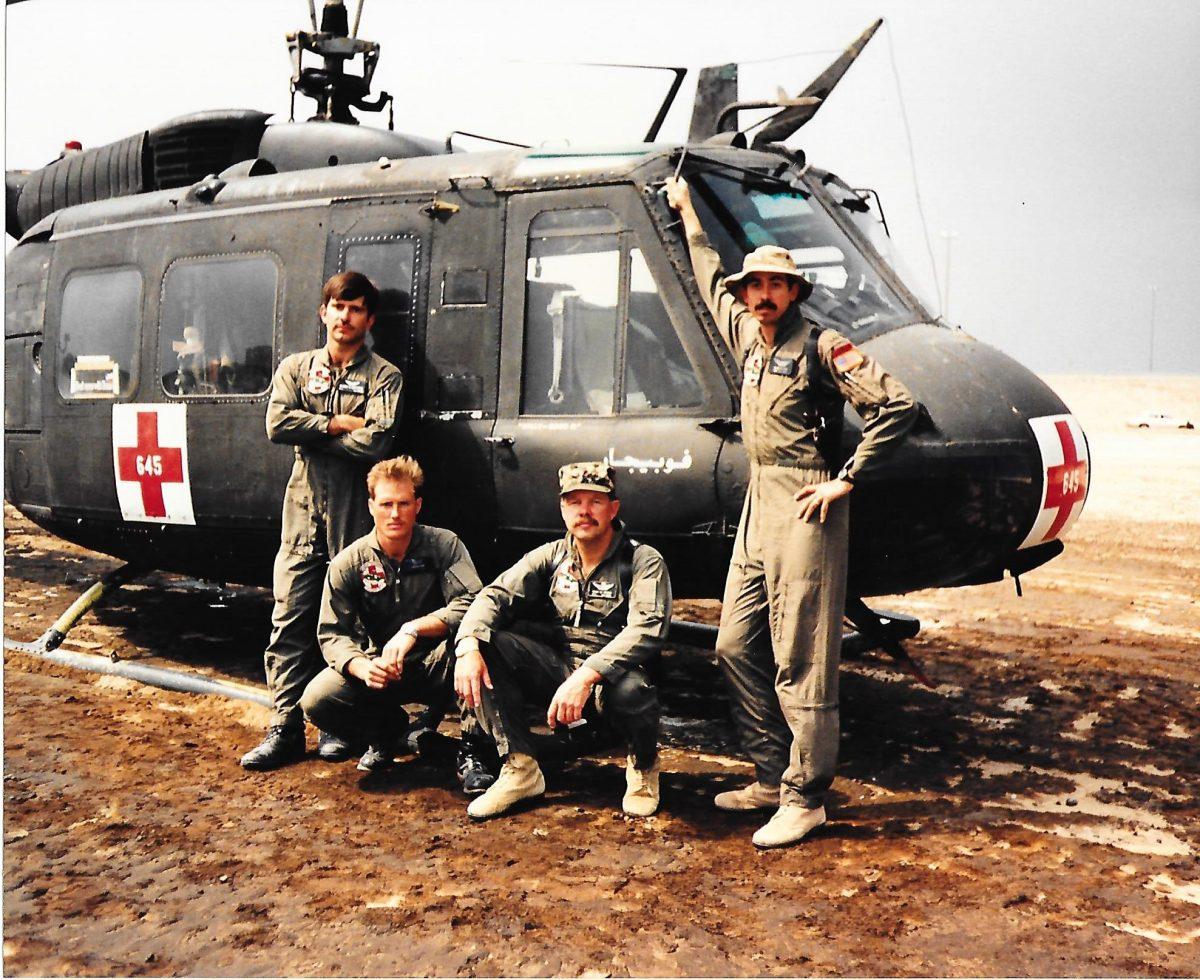Researchers at Texas A&M are taking steps to understand an illness soldiers received in the Gulf War.
Bobby Deiss, Class of 1980 and a veteran, is suffering from the effects from the Gulf War. Many other veterans similar to Deiss all over the country are struggling with the effects from Operation Desert Storm.
“Being in Saudi Arabia was what made a lot of people sick,” Deiss said. “We would blow our nose and black soot would come out and get everywhere.”
Researchers including Ashkok P. Shetty, associate director at the Institute for Regenerative Medicine and molecular and cellular medicine professor, recently published a study in a journal called Brain, Behavior and Immunity, addressing positive remedies for those dealing with Gulf War Illness (GWI) since the early ‘90s.
The study, funded by the Department of Veteran Affairs (VA) and the Department of Defense, focused on a curcumin, a component of turmeric. Turmeric is a spice found in curry and has many health benefits that could help with the disease long term. The spice has been used in animal models and has shown signs of reversing GWI.
“The whole idea is to reduce oxidative stress and information in the brain, so when we tested these components, we saw that,” Shetty said. “So it reduced oxidative stress inflammation and increased inflammation of new neurons in the hippocampus [of the brain.]”
Over 700,000 U.S. soldiers fought in the Gulf War, and 200,000 have had reported effects of the war, according to Shetty. These effects include sleep disorders, psychological problems, memory problems, fatigue, gastrointestinal problems and skin problems. During the war, chemicals such as nerve gas and other pesticides came into contact with soldiers while deployed.
“In addition to these chemicals, after our soldiers have come back, they called it Gulf War stress from anxiety and other sorts, but then more and more soldiers have been developing the same symptoms and it became Gulf War Illness,” Shetty said. “The war was over 25 years ago and we’ve been hard at work at work trying to figure out new ways to fight the effects, especially [for] the ones that have fought for us.”
Deiss enlisted in The United States Army in 1982 and ended his career as a Chief Warrant Officer in 2012. Deiss was a pilot in a reserve unit deployed on December 3,1990, in Saudi Arabia. He spent six months fighting in the country and providing medevacs for other wounded soldiers.
“It was pretty treacherous flying, so we mostly flew night missions and we had the first generation of night vision flight goggles, which were nowhere to what they are today,” Deiss said. “When we flew these night missions, we would fly at elevations of 100 feet and the Iraqis would set fire to the oil wells and we were flying through it all.”
Deiss said he has experienced physical problems throughout his body, as well as psychological problems.
“The first minute you said something was wrong, you would be grounded, and your career would be in jeopardy, so all you really could do was suck it up and keep moving forward” Deiss said
Shetty used an animal based model on the GWI to test the effects the Gulf War had on soldiers. Because of the conditions associated with GWI, Shetty used inflammation and increased oxidative stress where they used curcumin, where it was confirmed that animals had a response.
“We were very pleased in our tests that curcumin showed better signs of reactions among animals than the true control group,” Shetty said. “That can lead us to believe there is good ahead in or long road of discoveries and studies.”
Onward, Shetty wants to study the controlled results to see if the effects of GWI are felt immediately, instead of long term, which was what he studied in the past. Now, chemical warfare is much more dangerous and more lethal than it was in the ‘90s. The key for Shetty is moving his testing with curcumin among the trials of veterans.
“We know the war was 25 years ago, and we know so many veterans and generations of have been affected and we truly want and to look to make a difference in the lives of so many,” Shetty said.
Fighting for those who fought
March 28, 2018
Photo by Provided
Crew in Kuwait City
Donate to The Battalion
Your donation will support the student journalists of Texas A&M University - College Station. Your contribution will allow us to purchase equipment and cover our annual website hosting costs.




















